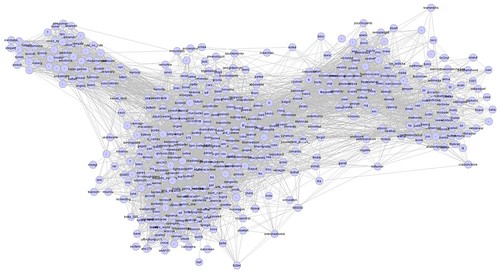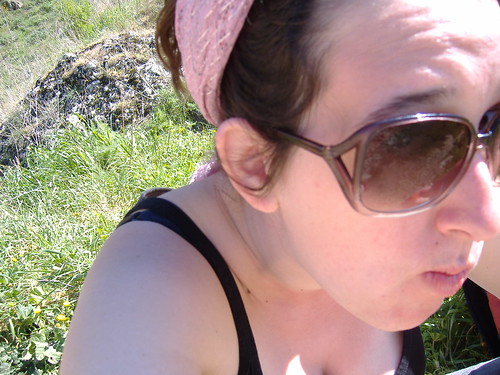
Image of FlickrLand (Flickr's social network) from GustavoG via Flickr and Creative Commons
Though Wahl-Jorgensen's book is rather dry and academic, I honestly find the content fascinating. And thanks to my many years in academia, I appreciate the endlessly annotated nature of the writing, even if its coming in my least favorite to read format of parenthetical notations. However any attempt to discuss any aspect of the journalism industry seems somehow dramatically outdated when compared to the reality of the current newspaper crisis. With reports as high as 15,000+ jobs lost for journalists in 2008, the landscape for journalism has been so dramatically impacted that it can be difficult to stay focused on an assessment that doesn't take these changes into account.
Lately I've been agreeing with thinking about journalism in a new frame. With so much information at our fingertips, it is possible that the role of the journalist is changing from information provider to discussion facilitator. Wahl-Jorgensen's placement of letters to the editor next to other forms of "mediated participation" falls short in today's world of Twitter and viral social networks. The idea of radio call-in programs or television talk shows as an advanced state of participation seems distant.
But the real difference is not simply how many more ways there are to participate, it is in how we define participation. Ultimately it is important to keep one distinction in mind: those old formats relied on a gatekeeper to control access to the audience. With platforms on the Internet everyone gets a shot, everyone gets a microphone, and everyone can get an audience. Moderated comments on a newspaper article or website may control some of the conversation, but for each location it is restricted in it can move to dozens of other un-mediated locations.

I agree with you that Journalist must now shift from more information providers to more discussion facilitators. However I still do believe that it is still the responsibility for a journalist to dig deep and find the connection between facts and relay their importance, something I think most people will not do themselves.
ReplyDelete